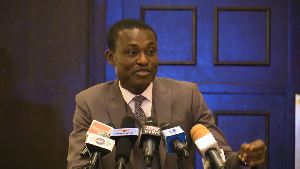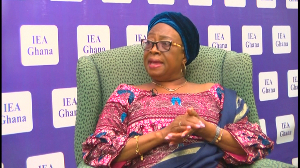The Ghana Coalition of NGOs in Health (GCNH) has urged the Government to establish an immunisation sustainability fund to facilitate the running of immunisation programmes after 2022.
This, they said, was necessary because the Global Alliance for Vaccine and Immunization (GAVI), a donor agency, would withdraw its support for vaccination projects in Ghana by 2022.
Mr. Bright Amissah-Nyarko, the Vice Chairman of the Coalition, announced this at an event to commemorate this year’s World Immunisation Week in Cape Coast, in the Central Region.
It was on the theme,” Immunisation for all, Sustainability Fund Now”.
He said vaccines were expensive so the country needed to adequately prepare itself in order not to overtaken by events should GAVI withdraw its support after Ghana’s attainment of a middle-income status.
GAVI is a public-private partnership, which is focused on saving children’s lives and protecting people’s health by increasing access to immunisation in poor countries.
It has supported more than 70 poor countries and immunised more than 500 million children. It has also prevented six million child mortalities in the world since 2000, and has contributed millions of dollars to Ghana’s immunisation programme over the past 15 years.
Mr Ammisah-Nyarko said: “A vaccine sustainability fund will ensure that children across the country are immunised against preventable diseases like measles, polio, diphtheria and help in the reduction of child mortality.
He appealed to civil society organisations, donor agencies, corporate institutions, the media and other stakeholders to help secure funding for the country’s immunisation programme beyond 2022.
Mr Amissah-Nyarko said this year’s celebration was focused on five key areas, which included the reduction in missed opportunities, reduction in vaccine wastage, and the reduction in risk of vaccine contamination. It also considered vaccine affordability and cold chain capacity requirement.
He noted that most urban districts had low performance and said the Coalition would, therefore, continue to partner the Ghana Health Service in those low performing districts to work effectively to increase coverage and the reduction of mortality.
Dr. Kwaku Anin Karikari, the Deputy Central Regional Director of Health, said the country had not recorded any deaths from measles since 2003 and that laboratory investigations had also confirmed a drastic decrease of the disease as a result of an intensified immunization programme.
He said the country had also not recorded any cases of indigenous polio due to the concerted efforts from health partners, adding that, Ghana eliminated neonatal tetanus in 2011, while the rest of the World were heading towards eradication of polio.
Dr. Daniel Asare, the Chief Executive Officer (CEO) of Cape Coast Teaching Hospital (CCTH), advised nursing mothers to ensure that their infants attended child welfare clinics, popularly called “weighing”, for up to five years in order to reduce the under -five mortality and morbidity rates.
He also urged men to play a greater role in the antenatal and postnatal care of mothers and their new-born babies by spending more time with them.
Awards were given to excelling mothers and fathers, while the Coalition donated 100 pieces of plastic chairs to the Child Welfare Unit of the CCTH.
Health News of Friday, 6 May 2016
Source: GNA
















